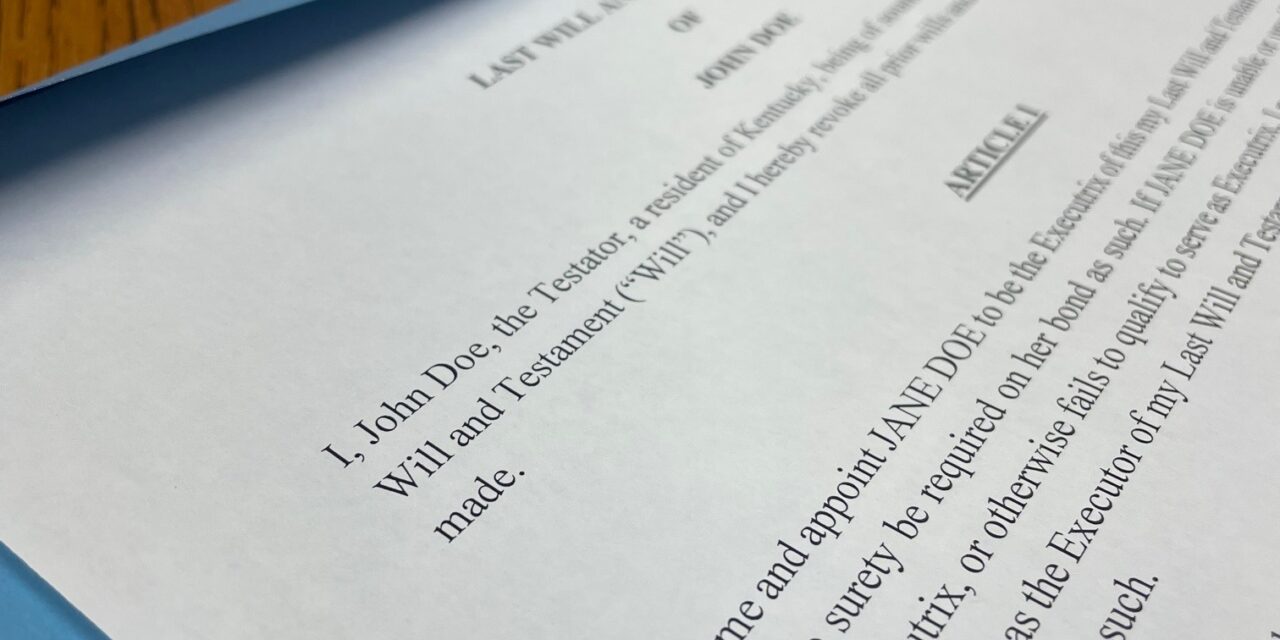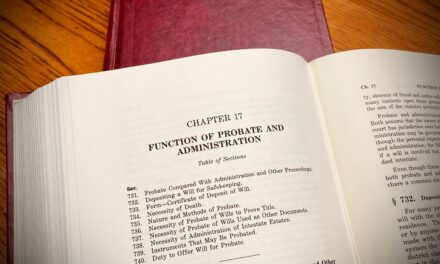When I meet with married clients about estate planning, I often hear “we don’t think we really need Wills because we are married, we get each other’s stuff anyway.” Many married couples have the misconception that the fact of being married means each spouse is entitled to the other’s property upon their death. However, this is not true in Kentucky!
In Kentucky, KRS 391.010 and 391.020 dictate what happens to a person’s property in the event they pass without a Last Will and Testament (what the law refers to as dying “intestate”). Generally speaking, in Kentucky the spouse gets one-half of the deceased spouse’s estate and the other half passes to (1) children if any, (2) if no children then to parents if living, and (3) if no parents survive then to siblings. The children of siblings (i.e., nieces and nephews) stand in the shoes of their deceased parents … so in a situation where a married person dies survived by nieces and/or nephews as the closest living relatives, the surviving spouse would share the deceased spouse’s estate.
Obviously this result would likely be contrary to the wishes of most married couples – the old adage of “what’s mine is yours and yours is mine” may be applicable in divorce cases, but it does not apply in death! Crafting a Last Will and Testament is key to avoiding the potential that a surviving spouse not only has to mourn the loss of their spouse, but may also have to deal with the dynamics of the deceased spouse’s relatives who have a legal claim to property (and imagine how much more difficult it would be if those relatives harbored negative feelings towards the surviving spouse!). Remember, KRS 391.010/020 only apply in the absence of a valid Will, therefore creating even a simple Will protects the surviving spouse.
There are of course other considerations when preparing the *contents* of a Will, but having a Will is an absolute necessity for married couples, and it’s important to discuss these estate planning concerns before they become problematic.



